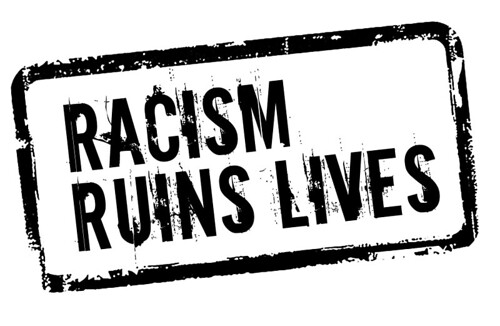Remembering the forgotten libertarian legacy of American anti-racism
(http://www.reason.com/news/show/134651.html)
In a 1992 speech at Colorado's Metro State College, Columbia University historian Manning Marable praised the black minister and activist Malcolm X for pushing an "uncompromising program which was both antiracist and anticapitalist." As Marable favorably quoted from the former Nation of Islam leader: "You can't have racism without capitalism. If you find antiracists, usually they're socialists or their political philosophy is that of socialism."
Spend time on most college campuses and you're likely to hear something very similar. Progressives and leftists, the conventional narrative goes, fought the good fight while conservatives and libertarians either sat it out or sided with the bad guys. But there's a problem with this simplistic view: It completely ignores the fact that classical liberalism—which centers on individual rights, economic liberty, and limited government—played an indispensable role in the fight for equal rights.
Indeed, from the great abolitionist Frederick Douglass, who championed the natural rights philosophy of the Declaration of Independence and declared "give the negro fair play and let him alone," to the conservative newspaper magnate R.C. Hoiles (publisher of what is now the Orange County Register), who denounced liberal President Franklin Delano Roosevelt's wartime internment of Japanese Americans while most New Dealers (and liberal Supreme Court justices) remained silent, classical liberals have long opposed racism and collectivism in all of its vile forms.
This important yet sadly-neglected history is the subject of Race & Liberty in America (University Press of Kentucky), a superb new anthology edited by Southern Illinois University historian Jonathan Bean, which features carefully selected articles, speeches, book excerpts, newspaper accounts, legal decisions, interviews, and other materials revealing, in Bean's words, that "classical liberals are the invisible men and women of the long civil rights movement." (Full Disclosure: Bean includes one of my articles in a list of recommended readings.)
There's Lysander Spooner, the radical libertarian, legal theorist, and abolitionist who argued that slavery was illegal under both natural law and the U.S. Constitution; Louis Marshall, the "ultraconservative" NAACP attorney and lifelong Republican who won the Supreme Court case Nixon v. Herndon (1927), striking down the "white primaries" favored by racist Southern Democrats; and Zora Neale Hurston, the acclaimed Harlem Renaissance novelist and folklorist who denounced New Deal relief programs as "the biggest weapon ever placed in the hands of those who sought power and votes" and endorsed libertarian Sen. Robert A. Taft (R-Ohio) for president in 1952.
As Bean demonstrates, when it comes to the history of civil rights and racial equality, most of us have only heard one part of the story. Take the NAACP, which was arguably the leading civil rights organization of the 20th century. Why, Bean writes, "do we know so much about W.E.B. DuBois [an NAACP activist and editor] but little about super-lawyer Moorfield Storey"? A founder of both the NAACP and the Anti-Imperialist League, Storey championed free trade, liberty of contract, and the gold standard alongside racial equality and non-interventionism. In 1917 he argued and won the NAACP's first major victory before the Supreme Court, Buchanan v. Warley, relying on property rights to strike down a residential segregation law. As George Mason University law professor David Bernstein argues, "Buchanan almost certainly prevented governments from passing far harsher segregation laws [and] prevented residential segregation laws from being the leading edge of broader anti-negro measures." DuBois credited the decision with "the breaking of the backbone of segregation."
Now contrast that with the racial record of a celebrated leftist such as labor leader and Socialist presidential candidate Eugene V. Debs. While typically lionized as a champion of the poor and downtrodden, Debs also served as head of the American Railway Union, a discriminatory outfit that banned blacks from its ranks. And while he was apparently personally sympathetic to African Americans, during his 1912 presidential campaign Debs simply declared, "We have nothing special to offer the Negro." Yet this was during the era of lynchings, Jim Crow, and other acts of state criminality that specifically targeted the rights of blacks, a situation classical liberals like Storey clearly understood and effectively challenged.
Along similar lines, Race & Liberty in America includes a fascinating 1924 article from Howard University president Kelly Miller arguing that in the battle between labor and capital, blacks should side with the bosses. "The capitalist stands for an open shop which gives to every man the unhindered right to work according to his ability and skill," Miller wrote. "In this proposition the capitalist and the Negro are as one." Try finding that quote in most standard labor histories!
Taken together, the documents collected in this volume present overwhelming evidence that classical liberalism deserves serious attention in any account of the American struggle for civil rights and a colorblind society. Rather than serving as the villains caricatured by Malcolm X, Manning Marable, and others on the left, classical liberals provided essential intellectual, political, moral, and financial firepower in the battles against slavery, Jim Crow, imperialism, and racial classifications. With Race & Liberty in America, these largely unsung heroes are finally getting some of their due.
Damon W. Root is an associate editor of Reason magazine.
Thursday, July 16, 2009
Classical Liberalism and the Fight for Equal Rights
Subscribe to:
Post Comments (Atom)



No comments:
Post a Comment